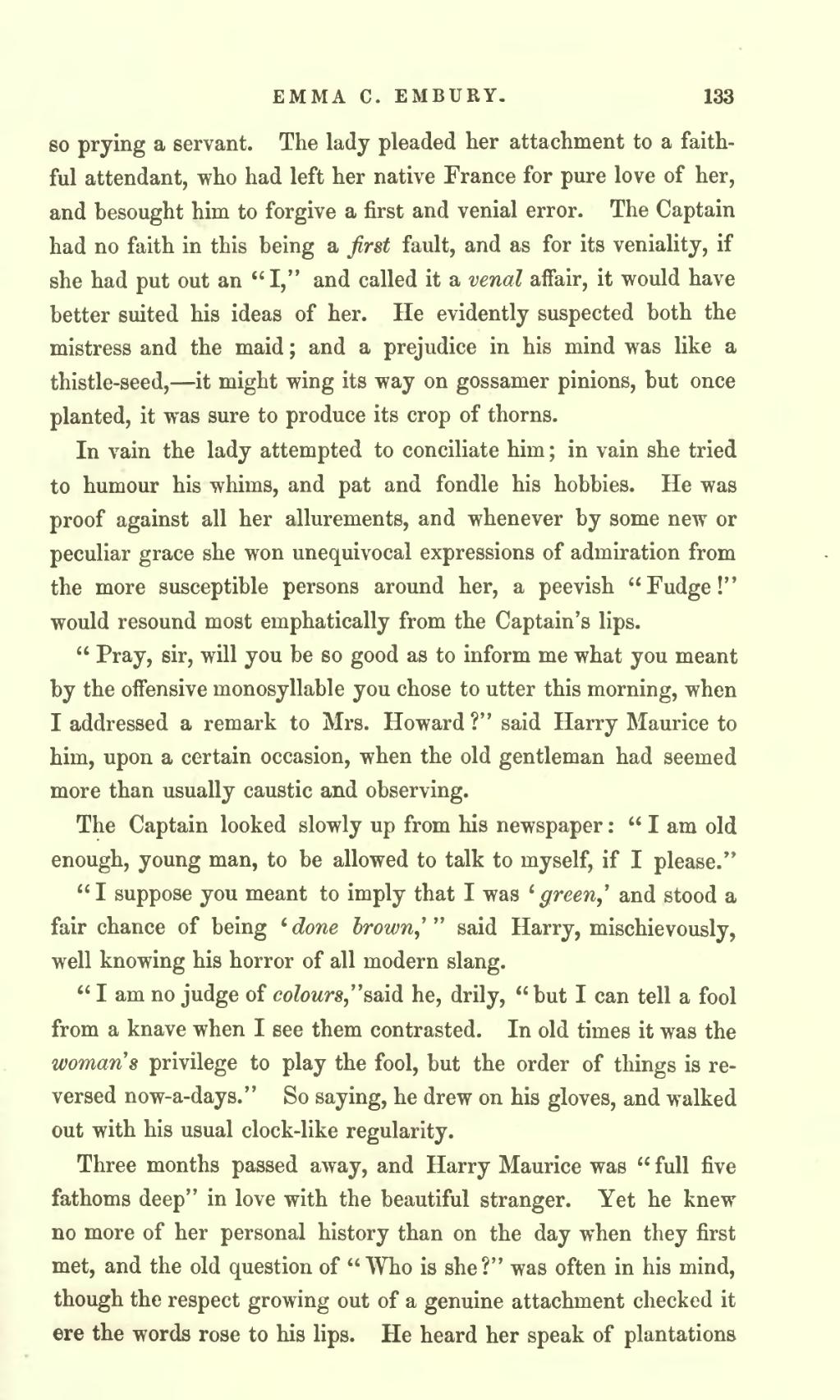so prying a servant. The lady pleaded her attachment to a faithful attendant, who had left her native France for pure love of her, and besought him to forgive a first and venial error. The Captain had no faith in this being a first fault, and as for its veniality, if she had put out an “I,” and called it a venal affair, it would have better suited his ideas of her. He evidently suspected both the mistress and the maid; and a prejudice in his mind was like a thistle-seed,—it might wing its way on gossamer pinions, but once planted, it was sure to produce its crop of thorns.
In vain the lady attempted to conciliate him; in vain she tried to humour his whims, and pat and fondle his hobbies. He was proof against all her allurements, and whenever by some new or peculiar grace she won unequivocal expressions of admiration from the more susceptible persons around her, a peevish “Fudge!” would resound most emphatically from the Captain’s lips.
“Pray, sir, will you be so good as to inform me what you meant by the offensive monosyllable you chose to utter this morning, when I addressed a remark to Mrs. Howard?” said Harry Maurice to him, upon a certain occasion, when the old gentleman had seemed more than usually caustic and observing.
The Captain looked slowly up from his newspaper: “I am old enough, young man, to be allowed to talk to myself, if I please.” “I suppose you meant to imply that I was ‘green,’ and stood a fair chance of being ‘done brown,’” said Harry, mischievously, well knowing his horror of all modern slang.
“I am no judge of colours,” said he, drily, “but I can tell a fool from a knave when I see them contrasted. In old times it was the woman’s privilege to play the fool, but the order of things is reversed now-a-days.” So saying, he drew on his gloves, and walked out with his usual clock-like regularity.
Three months passed away, and Harry Maurice was “full five deep” in love with the beautiful stranger. Yet he knew no more of her personal history than on the day when they first met, and the old question of “Who is she?” was often in his mind, though the respect growing out of a genuine attachment checked it ere the words rose to his lips. He heard her speak of plantations
